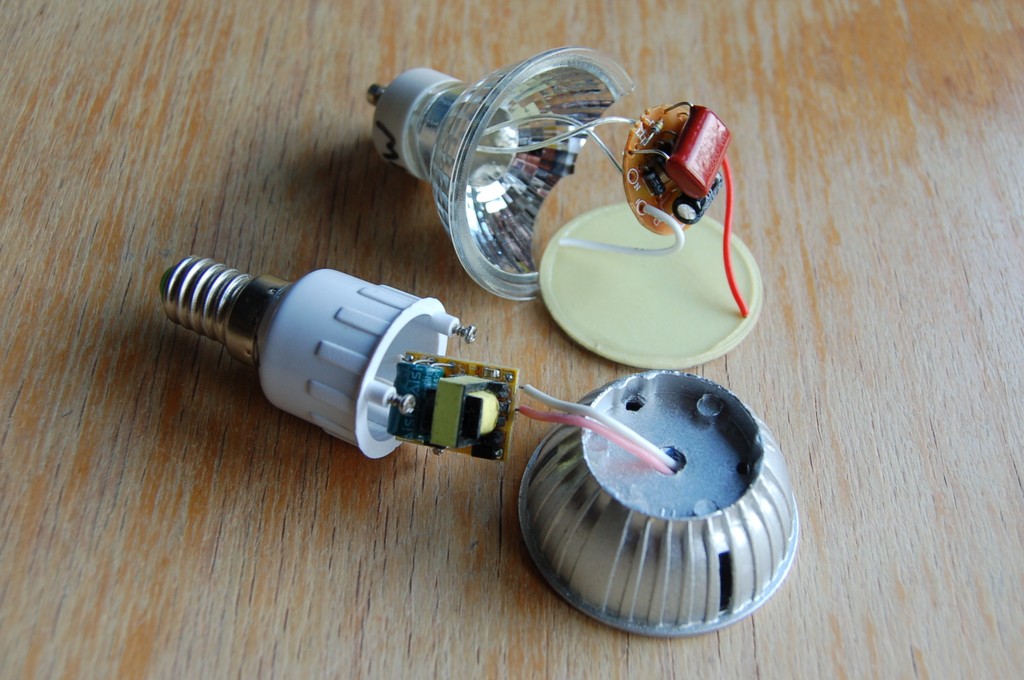RFI: Buck Converter
versus
Series Capacitor LED Bulbs
Serge Y. Stroobandt, ON4AA
Copyright 2018–2020, licensed under Creative Commons BY-NC-SA
All bulbs are not made the same!
Not all LED bulbs are made the same! There are two ways to convert mains high‑voltage AC to low voltage DC energy required to power light emitting diode (LED) bulbs.
- One way to lower the mains voltage is to employ a step‑down buck converter. Without any capacitor ripple filter present at the load side, this type of LED bulb causes an ilegal amount of radio frequency interference (RFI). Once the LED bulb opened and exposed, a buck converter can be easily recognised by its yellow transformer (Figure 1; front).
- A high-voltage series capacitor in combination with a series resistor is another way to tap a low voltage from the mains. If moreover a full wave rectifier is employed, this type of LED bulb will not cause any RFI. The high-voltage series capacitor is easily recognisable (Figure 1; back)
At times, it is hard to tell both types apart without opening the packaging. A white neck casing is more indicative of a buck converter, but this is not always the case. LEDs with a GX53 socket are almost always using a series capacitor. Even if a buck converter LED bulb complies with EMC regulations, it will still emit some noise.
When shopping for LED bulbs, buy always a single unit for testing first, before committing to more.

Front: EMI dirty LED bulb with unfiltered buck converter, recognisable by its yellow transoformer;
Back: EMI clean LED bulb with a big, red‑coloured series high‑voltage capacitor.
LED database
The German radio society DARC maintains a LED bulb EMI database. In lack of proper governmental EMC policing, this initiative should be applauded! Consult this database prior to spending your hard‑earned money on some noisy LED bulbs.
Policing
The vast, underpopulated land masses of Australia, render HF radio an essential survival tool. Undoubtedly, this is the very reason why LED bulb policing is stricter there than anywhere else in the world. Good job!

This work is licensed under a Creative Commons Attribution‑NonCommercial‑ShareAlike 4.0 International License.
Other licensing available on request.

Unless otherwise stated, all originally authored software on this site is licensed under the terms of GNU GPL version 3.
This static web site has no backend database.
Hence, no personal data is collected and GDPR compliance is met.
Moreover, this domain does not set any first party cookies.
All Google ads shown on this web site are, irrespective of your location,
restricted in data processing to meet compliance with the CCPA and GDPR.
However, Google AdSense may set third party cookies for traffic analysis and
use JavaScript to obtain a unique set of browser data.
Your browser can be configured to block third party cookies.
Furthermore, installing an ad blocker like EFF's Privacy Badger
will block the JavaScript of ads.
Google's ad policies can be found here.
transcoded by
 .
.


